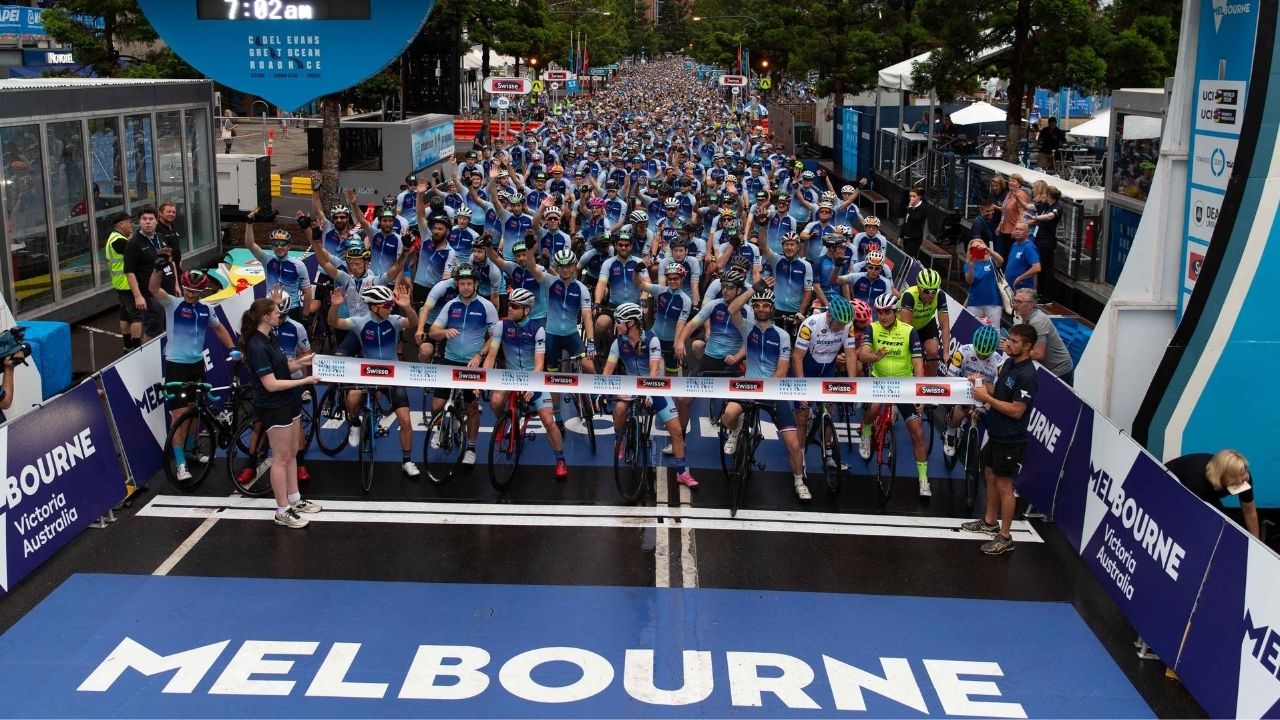“Just because I’m male should not deny me the ability to cry when I’m feeling emotional or vulnerable.”
Wayne Schwass, founder and CEO of PukaUp, cyclist and former AFL star, says he has cried more in the past five years than during the rest of his life.
“I’ve grown up living a life with this belief that men don’t cry. Those that do are weak, they’re soft and – in a sporting context – you can’t trust them,” says the 51-year-old.
“With a lot of self-reflection, I’ve realised that I spent most of my adult life trying to meet expectations of other people. What that’s allowed me to understand is what’s important to me. What are my expectations that are positive, constructive and supportive of the person that I want to be?”
REASONS TO RIDE
Wayne has widely shared his mental health journey, revealing a battle with depression that spanned much of his 15 year AFL career with North Melbourne and Sydney.
Since retiring in 2002, Wayne has found solace in cycling. In 2019, he rode from Melbourne to Sydney to raise funds for mental health awareness and suicide prevention. In a pre-pandemic life he was clocking up to 600 kilometres a week.
“I really enjoy the sense of connection and belonging within a group of people that ride bikes together,” says Wayne, who founded PukaUp in 2017 to help normalise conversations around mental health. “But, cycling for me is also about meditating.
“I can’t tell you the number of times I’ve been on a solo bike ride where an idea, a solution or a potential workaround has come into my head. I think that’s because I’m doing something that I love with no distractions.”
Wayne urges cyclists – and the community at large – to keep moving during the pandemic.
“Exercise has enormous mental and emotional benefits and during this time it doesn’t matter what you do – a ride, a walk, a run – what matters is that we exercise,” he says. “It is a behavioural choice that has profoundly positive impacts on our physical and mental health.”
3 THINGS TO CONSIDER WHEN ASKING RUOK?
With RUOK Day on 10 September, Wayne says it’s more important than ever to focus on creating an environment, especially at home, that empowers everyone to access all of their emotions.
“This pandemic is a human experience and whether you’re male or female, you should be allowed to feel vulnerable and emotional.”
He adds, when children see their parents emotionally connected and expressive, it shows them this is normal behaviour.
“We don’t want our children to shut down emotionally and believe that feeling this way is a sign of weakness. We want them to feel it, experience it, display it and ask for help.”
Furthermore, Wayne says, starting a conversation with a friend or loved one can help them open up. But, there are three things to consider when asking if someone is okay.
“Firstly, are you prepared for a conversation that you might find challenging and uncomfortable yourself?” he says. “You need to consider how you will look after your own mental health, but also how you will support the person that might share some things that are really challenging.”
Secondly, he says, it’s important to remember that people who live with mental health conditions, don’t pick the day. “There are 364 other days in the year so, if you’re concerned don’t wait for 10 September to start having the conversation.”
Thirdly, Wayne encourages people to call triple zero if someone shares information that makes you concerned for their health or safety, and stay with them until a health professional arrives.
By Harriet Edmund
Crisis support services can be reached 24 hours a day: Lifeline 13 11 14; Beyond Blue 1300 22 4636.
